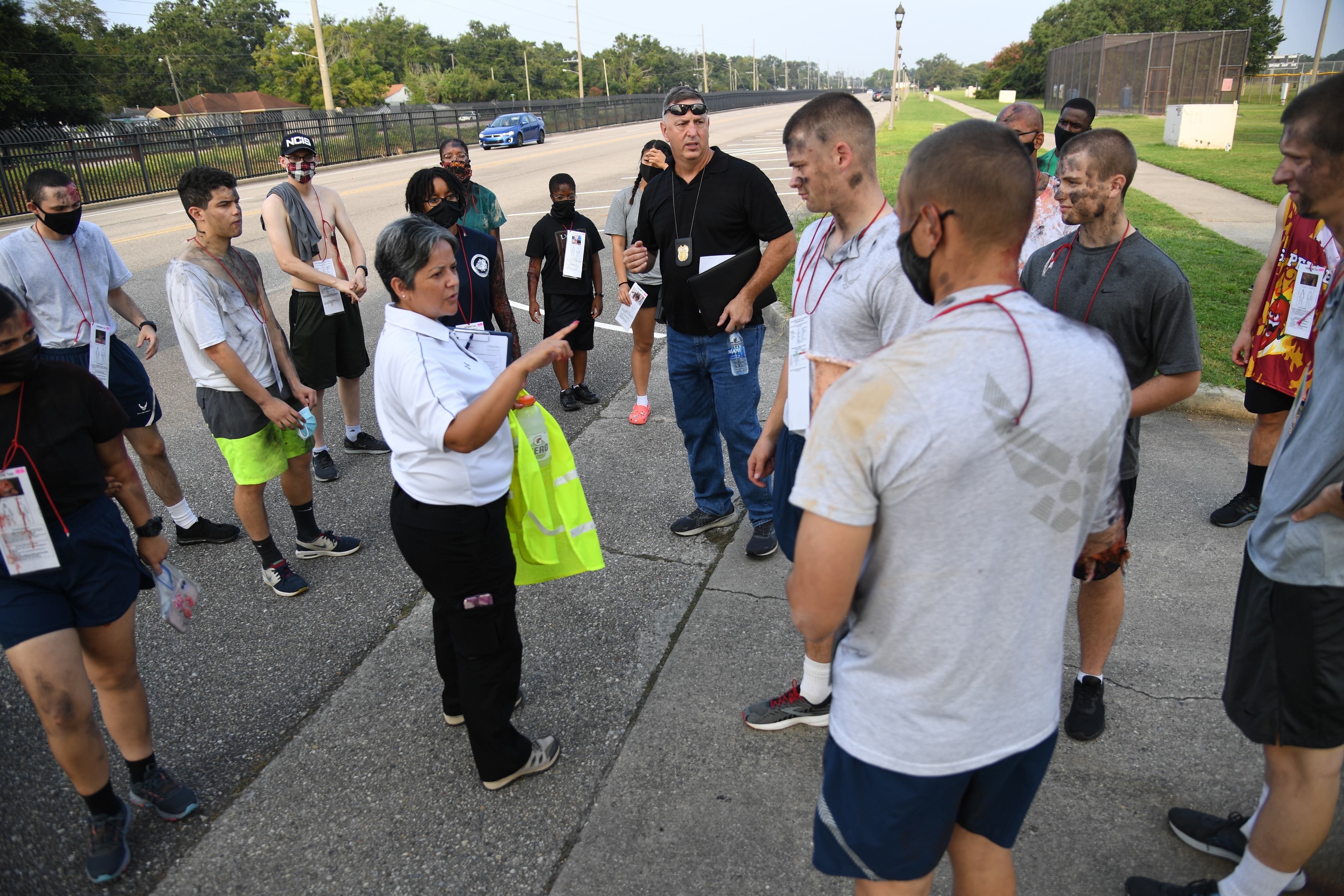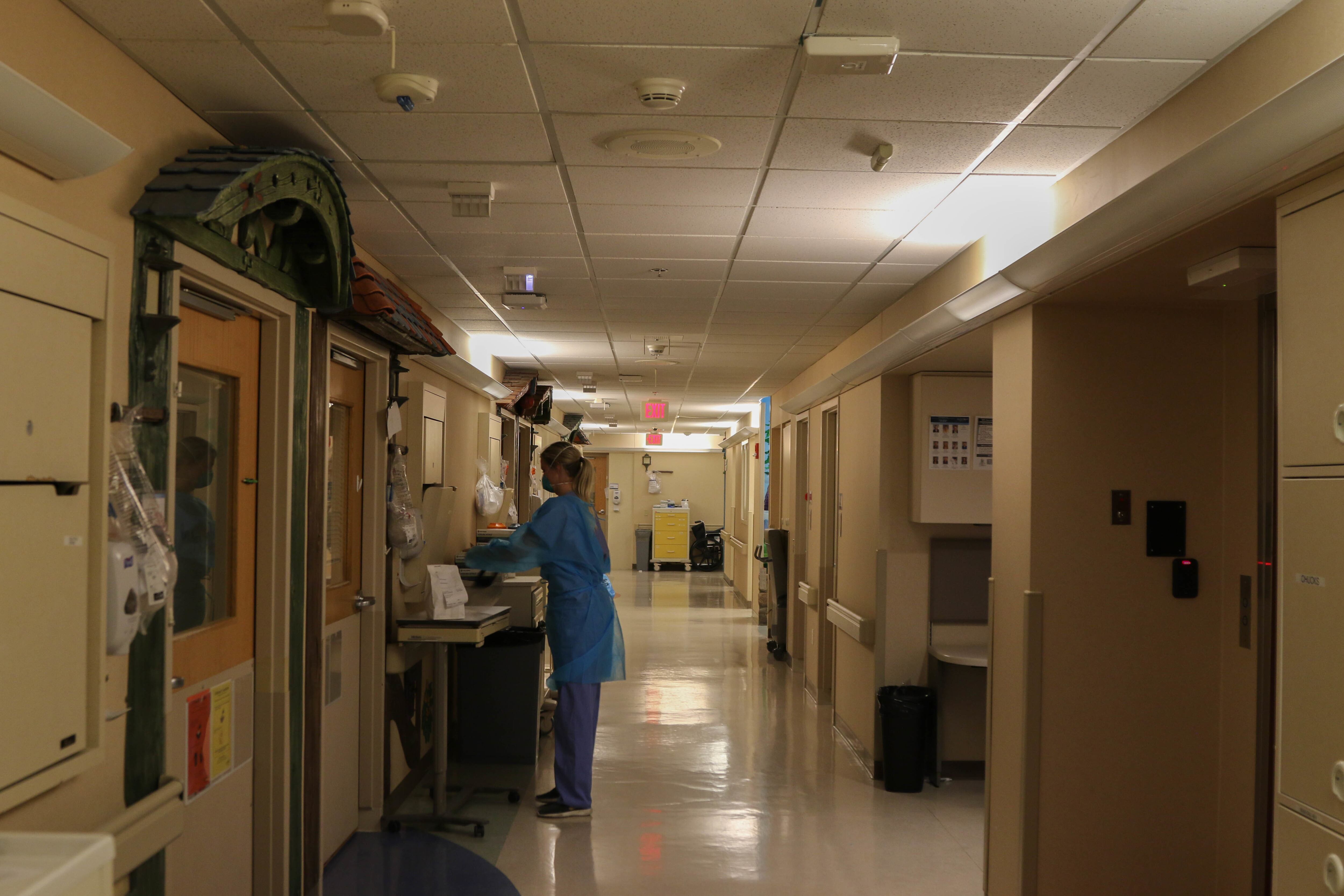Two years of the coronavirus pandemic led to staff shortages and hiring complications nationwide.
But companies in the Military Times’ “Best for Vets: Employers” rankings for 2022 may have had an advantage. Officials from firms at the top of this year’s list said recruiting and retaining veterans was a solution already in hand, not one more task they had to complete.
“With the talent wars so strong, we’ve needed to find other good avenues for recruiting folks,” said Patrick Krug, veterans community network lead at Bristol Myers Squibb, the New Jersey-based pharmaceutical giant and the top company on this year’s list. “And guess what? We already have that with our veterans pipeline.
“They have great transferable skills, plus they bring additional skills of leadership, flexibility, dedication and all the other intangibles that veterans bring. So in 2021 and 2022, we’re up almost 400% in veteran hiring, versus 2020 and earlier years.”
More than 170 employers participated in the 2022 survey, which provides a snapshot on where firms stand on employment policies, hiring practices and support services that target America’s veterans. Participation in the rankings is voluntary, and the final list is not meant to be a comprehensive accounting of the policies of all defense contractors and U.S. businesses.
The full list of this year’s Best for Vets employer rankings is available here.
The list was compiled in partnership with the Fors Marsh Group, a research firm specializing in the veterans and the military community.
For the past two years, the rankings have been focused on areas of importance to veterans in the workplace, including areas such as mentorship programs, military-specific training opportunities and connections with the veterans community.
The 2022 rankings included four new companies in the top five. Researchers said that was a result not of established firms doing more poorly but of many companies outperforming their past scores — a reflection of increased focus and support for veterans across the workforce.
Bristol Myers Squibb was among the biggest risers. Krug said in the last year, the company has put anew emphasis on finding additional partners in the veterans community as a way to help make connections for would-be recruits and established employees.
But Krug also said many vet-friendly policies, long been in place, are paying dividends now.
“We’ve focused on not just early-career recruiting of veterans but mid-level and executive recruiting too, because we want to help our ranks there as well,” he said. “We believe that veterans should be represented at every level.”
Recruiting despite COVID
Large-scale job fairs were traditionally a key component of veteran recruiting until the start of the COVID-19 pandemic began two years ago.
But when the virus shut down those in-person events, companies were forced to re-evaluate their approach to reaching out to veteran talent.
“Those large convention center fairs, you’re going to see a blended approach from now on,” said Lindsey Streeter, who leads military affairs strategy at Bank of America, the fifth-ranked company on this year’s rankings.

“But before COVID, we had already made a deliberate effort to move into the virtual recruiting space. We had begun digitally capturing resumes, we were already conducting remote interviews. So that platform and internal infrastructure sustained our recruiting pipeline of talent through COVID.”
Similarly, officials at Comcast NBCUniversal, the third-ranked company in the rankings, said that five years of military recruiting and hiring efforts prior to the start of the pandemic meant the company had established routes to communicate with veteran job seekers even as those in-person events disappeared.
“Our talent acquisition folks and recruiters really look towards the military talent market as an optimal place to get high-quality folks, because that has already become so ingrained into our company,” said Sean Casey, senior director of communications for the company’s military and veteran affairs.
“So now, when we see a disruption like COVID, we don’t see a market change in those recruiting numbers.”
Officials at Sanford Health, a non-profit healthcare headquartered in South Dakota, in the last year formalized their partnership with the Defense Department’s SkillBridge program, which allows troops in their final months of service to work as interns or apprentices at private sector firms.
The relationship is designed to help ease service members’ transition to civilian life, while also showcasing the skills that troops have from their time in the military.
“We’re already seeing measurable results from that,” said Paul Weckman, head of military and veteran affairs at Sanford Health, the fourth ranked company on the list. “It gives [those troops] an opportunity to see our organization and what we do, and help get the word out that we want to hire veterans.”
Remote work for vets
Weckman said one silver lining of the COVID pandemic has been normalizing remote work, which has allowed his company to more aggressively recruit veterans and military spouses across the globe.
“Once we showed that remote work was viable, it just removed a huge barrier,” he said. “And military spouses are probably the one of the most underutilized workforces out there, because they move so much. But now we can hire them to work from anywhere.”
Officials from Booz Allen Hamilton, the publicly traded consulting firm and second-ranked company on this year’s Best For Vets list, said initially less than 5% of their workforce was remote. In the initial months of the pandemic, they worried that a large-scale shift could disrupt operations.
“And by May 2020, it was clear that remote work did not have a significant negative impact,” said George Bernloehr, military talent acquisition lead for the firm. “And then the message was, ‘the demand for our work is still there, don’t hesitate on hiring, we still need talent.’”
That opened up interviews to veterans in areas further away from central offices, and hiring managers looking at skills sets more than geography.
Krug said after some initial reluctance to the idea, senior officials at Bristol Myers Squibb have begun to explore expanding remote positions for certain specialties, especially technical support, which can be an area of emphasis for numerous military-to-civilian job transition programs.
“Now we’re starting to make our partners at Hiring Our Heroes and other groups aware of that,” he said.

Staying engaged with vets
The shift to online work, however, also disrupted some firms established in-person support services and community meetings for military employees. Now, as COVID-19 cases have dropped, some of those activities are resuming.
But company officials — and employees — found creative ways to keep that sense of community amid the pandemic too. Streeter said Bank of America’s military support and assistance group found ways to complete online volunteering for veterans charities over the last few years, and saw involvement in the group increase.
“That membership was about 10,000 before COVID, and now we’re up to 17,000 members,” he said. “They found ways to write welcome home letters, raise money to donate homes to homeless veterans. And we’re really proud of what they have done.”
Casey said at Comcast, the increase in work-from-home responsibilities across the business world led officials to expand its program to provide low-cost, high-speed internet to military and veterans families.
“With the pandemic elevating the digital divide, that had to be a focus for us,” he said. “So we’re continuing to work with veteran service organizations or and military community organizations to open more opportunities across the country.”
Corporate officials said those moves show that their firms want not only to bring veteran talent into the workforce, but be a part of the veterans community.
“We work with Operation Gratitude, we work with Fisher House Foundation and others because we want our people to be able to continue their mission,” Krug said. “By continuing to support other veterans and military-connected individuals out there, we want [our employees] to be boots on the ground and continue their service in a different capacity.”
Leo covers Congress, Veterans Affairs and the White House for Military Times. He has covered Washington, D.C. since 2004, focusing on military personnel and veterans policies. His work has earned numerous honors, including a 2009 Polk award, a 2010 National Headliner Award, the IAVA Leadership in Journalism award and the VFW News Media award.




